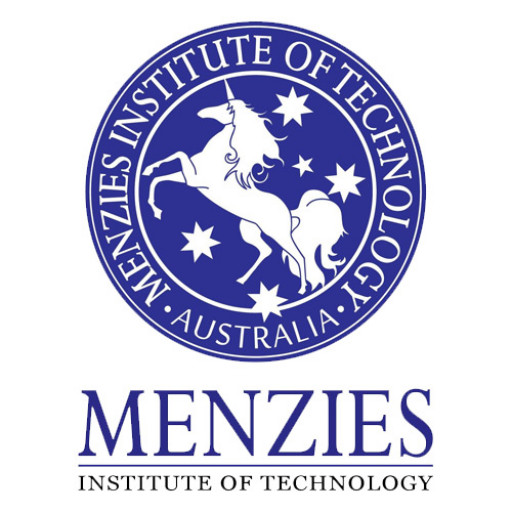Photos of university / #uniofadelaide
The Bachelor of Oral Health with a specialisation in Forensic Odontology at the University of Adelaide offers an in-depth exploration into the application of dental science in the criminal justice system. This innovative program combines foundational knowledge in oral health and dental science with specialized training in forensic techniques used to identify human remains, analyze bite marks, and contribute to investigations involving dental evidence. Students will gain comprehensive skills in human anatomy, pathology, and the principles of forensic science, supported by practical experience in laboratories and fieldwork. The curriculum emphasizes the importance of ethical considerations, legal aspects, and the role of forensic odontologists in multidisciplinary teams. Throughout their studies, students will learn about the collection, preservation, and analysis of dental evidence, understanding how dental features can be used to identify victims or suspects with high accuracy. The program prepares graduates for careers in forensic laboratories, law enforcement agencies, or further academic research, emphasizing critical thinking, meticulous attention to detail, and effective communication skills. With access to state-of-the-art facilities and expert faculty members, students will engage in hands-on training and case studies that mirror real-world scenarios. The University of Adelaide’s strong links with forensic institutions and industry partners ensure graduates are well-equipped to meet the demands of this specialized field. Graduates of this program will be positioned to make significant contributions to forensic investigations, advancing justice processes through scientific expertise. The program also encourages ongoing professional development and lifelong learning, fostering an environment of inquiry and innovation in forensic odontology. Whether aspiring to work on criminal cases, mass disasters, or humanitarian efforts, students will develop a comprehensive understanding of how dental evidence intersects with forensic science and criminal justice, preparing them for a rewarding career in this vital forensic discipline.
The Forensic Odontology program at the University of Adelaide provides students with a comprehensive understanding of the application of dental science in forensic investigations. This program is designed to equip graduates with advanced skills in the identification of human remains through dental records, bite mark analysis, and age estimation, playing a vital role in crime scene investigation, disaster victim identification, and legal proceedings. Students will learn about the anatomy and pathology of teeth, as well as methods for collecting, analyzing, and presenting dental evidence in a forensic context. The curriculum combines theoretical knowledge with practical laboratory training, enabling students to develop critical hands-on experience in forensic odontological techniques. Topics covered include dental evidence collection, fingerprinting and facial reconstruction related to dental features, the legal aspects of forensic evidence, and ethical considerations in forensic practice. The program also explores the use of modern technologies such as digital imaging, 3D scanning, and forensic databases to enhance identification accuracy. Throughout the course, students engage with case studies and real-world scenarios to understand the role of forensic odontologists in multidisciplinary teams. Graduates of the program are prepared for careers in forensic laboratories, law enforcement agencies, and forensic consultancy services. They may also pursue research opportunities to further develop forensic science methodologies. The program emphasizes the importance of attention to detail, scientific rigor, and ethical responsibility in forensic practice, ensuring that students are well-equipped to contribute effectively to justice and public safety. By the end of the program, students will have gained a thorough understanding of the scientific and practical aspects of forensic odontology, positioning them as valuable experts in the field of forensic science and criminal investigation.
Program Requirements:
The Bachelor of Dental Surgery with Honours in Forensic Odontology at the University of Adelaide is a specialized undergraduate program designed to prepare students for careers in forensic science and dentistry. To be eligible for admission, applicants must meet the general entry requirements of the university, including completion of the South Australian Certificate of Education (SACE) or equivalent qualification with the required minimum standing and specified prerequisite subjects such as chemistry and biology. International students are generally required to demonstrate English language proficiency through tests like IELTS or TOEFL.
Once admitted, students are expected to complete a comprehensive curriculum that includes core courses in dental science, anatomy, pathology, and forensic science techniques. Practical skills are emphasized through laboratory work, simulated forensic case studies, and internships with forensic laboratories or law enforcement agencies. The program emphasizes the development of analytical and investigative skills necessary for identifying human remains, bite mark analysis, age estimation, and presentation of forensic evidence in legal contexts.
In addition to coursework, students must participate in research projects related to forensic odontology, which may involve collaboration with external forensic institutions and participation in national or international conferences. Ethical considerations, professionalism, and communication skills are integrated into the program, ensuring graduates are well-prepared for multidisciplinary collaboration in forensic investigations.
To graduate with the Honours degree, students are required to complete an Honours thesis, demonstrating their ability to conduct independent research in forensic odontology. The thesis is usually undertaken during the final year of study and evaluates the candidate’s research skills, critical thinking, and contribution to the field. Overall, the program aims to produce highly skilled professionals capable of applying dental science techniques in forensic contexts, contributing to justice and crime scene investigations.
Note: For detailed and specific program requirements, including credit points, compulsory courses, and assessment criteria, visiting the official University of Adelaide Department of Dentistry and Oral Health webpage or contacting academic advisors is recommended.
The University of Adelaide offers financial support options for students enrolled in the Forensic Odontology programme. Tuition fees for domestic students are subsidized by the government under the Higher Education Contribution Scheme (HECS-Help), which allows eligible students to defer payment until they are earning above a certain threshold. International students are required to pay full tuition fees, which vary depending on the specific course components and academic level. For the 2023 academic year, the estimated fee for postgraduate coursework programs related to forensic sciences, including forensic odontology, is approximately AUD 40,000 to AUD 50,000 per year. Students are encouraged to explore scholarships and bursaries offered by the university, which can provide financial assistance based on merit, need, or country of origin. The University of Adelaide Scholarship Finder provides information about available scholarships, including the Adelaide International Scholarships and Country-specific awards. Additionally, students may access government-funded financial assistance schemes, such as loans or grants, depending on their eligibility and residency status. For domestic students, payment plans and financial counseling services are available to help manage tuition costs and living expenses. The university also offers Work-Integrated Learning opportunities, which may include part-time jobs on campus, to support students financially during their studies. It is recommended that prospective students consult the university’s Financial Aid Office for personalized advice regarding available financial support, application procedures, and deadlines. Overall, managing the costs associated with a forensic odontology degree involves a combination of government subsidies, scholarships, personal savings, and possibly part-time employment, ensuring students have access to necessary resources to complete their education successfully.
The University of Adelaide offers a specialized program in Forensic Odontology designed to equip students with comprehensive knowledge and practical skills in the application of dental science to criminal and civil investigations. This program focuses on the identification of human remains through dental analysis, providing vital evidence in forensic cases. Students explore various topics such as human dentition, dental anatomy, forensic techniques, age estimation, bite mark analysis, and the role of forensic odontologists in legal proceedings. The curriculum combines theoretical coursework with practical laboratory work, enabling students to develop competencies in dental fingerprinting, evidence collection, and interpretation of forensic data.
The program is suitable for dental professionals seeking to expand their expertise into forensic sciences, as well as for graduates from related fields interested in forensic investigation careers. It emphasizes interdisciplinary collaboration, highlighting the integration of dental science with criminology, law enforcement, and legal processes. Students learn about ethical considerations, chain of custody, and report writing to ensure they meet professional standards required in forensic investigations. The program may include internships or collaborative projects with law enforcement agencies, providing students with real-world experience and networking opportunities within the forensic community.
Graduates of the program will be qualified to work as forensic odontologists, contributing to criminal investigations, mass disaster victim identification, age estimations, and court proceedings. The program also prepares students for further research or academic careers in forensic sciences and odontology. Given the university’s strong emphasis on research and innovation, students have access to state-of-the-art laboratories and resources, supporting advanced analytical techniques such as digital imaging, DNA analysis, and forensic radiology. Overall, the program aims to produce highly skilled forensic odontologists capable of making significant contributions to justice and public safety through scientific expertise.







